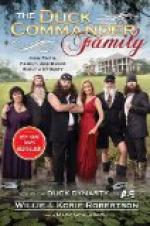“Does not your own heart tell you, Freda? Can we love and not know it? Tell me that, for I too would fain know. There are so many sorts of love. Can one always judge aright?”
“Dost thou feel that too, my Magda? Verily, I have thought that Master Cole—”
Magda put her hand upon her sister’s lips; her face was all one great blush.
“Nay, nay; that is but fantasy. He has a kindly word for all who please his eye. It may be one today and another tomorrow. He is a pleasant comrade; but—”
“But not the man of thy choice, sweet sister?”
“How can I tell yet? We have not known him long time. And I love better those who talk of higher things than games and songs and pastimes. But the men of books and earnest thought are devoted so oft to the church. And those who are left—one cannot tell. They are brave and winsome and gay; but more than that is wanted in a husband, Freda. Ah, it is hard for us maidens to know.”
And sitting with arms entwined, the sisters spoke freely and fully to each other of all the things that were in their hearts, and prayed that they might be guided aright in matters which pertained to the life they must look forward to living in the world.
Chapter V: Sweet Summertide
The months of May and June flew by as if on golden wings. The youths of Oxford, engrossed in study and in merry pastimes, seemed for a while to have cast away those graver thoughts which had been stirring them of late; or at least, if the current still ran, it seemed for the time being to run in silence. Perhaps the knowledge that the cardinal had set himself to the task of nipping in the bud the dangerous growth of incipient heresy alarmed some of the more timid spirits; whilst others sought for truth and light as it was to be found amongst their recognized preachers and teachers, and were often surprised at the depth of spirituality and earnestness which they found in men who were stanch to the core to the traditions of the church, and held in abhorrence the very name and thought of heresy.
Dr Langton’s daughters heard little of the doings of the “Christian Brethren” during these bright months. Anthony Dalaber was more engrossed in his own studies and in his prowess at calcio (which was the most fashionable game through that summer) than in the religious movement which had occupied his mind before.
It was not that he had changed his opinions, or in any way drawn back from his admiration for the men connected with this movement. When he spoke of it sometimes with Freda his eyes would glow with feeling, and all the old fervour and earnestness would come back like a flood upon him; but there was nothing for the moment for him to do. The importation of forbidden books into the country had been temporarily checked by the vigilance of the cardinal and his servants. The king was breaking a lance in argument with Martin Luther, and men were watching the result with interest and curiosity. And there was a certain awakening of spiritual light within the church itself, and pure and enlightened spirits there were making their voices heard; so that many (like John Clarke himself) hoped and believed that the much-needed reformation and purification would come from within, by her own act, rather than by any warfare against her as from without.




